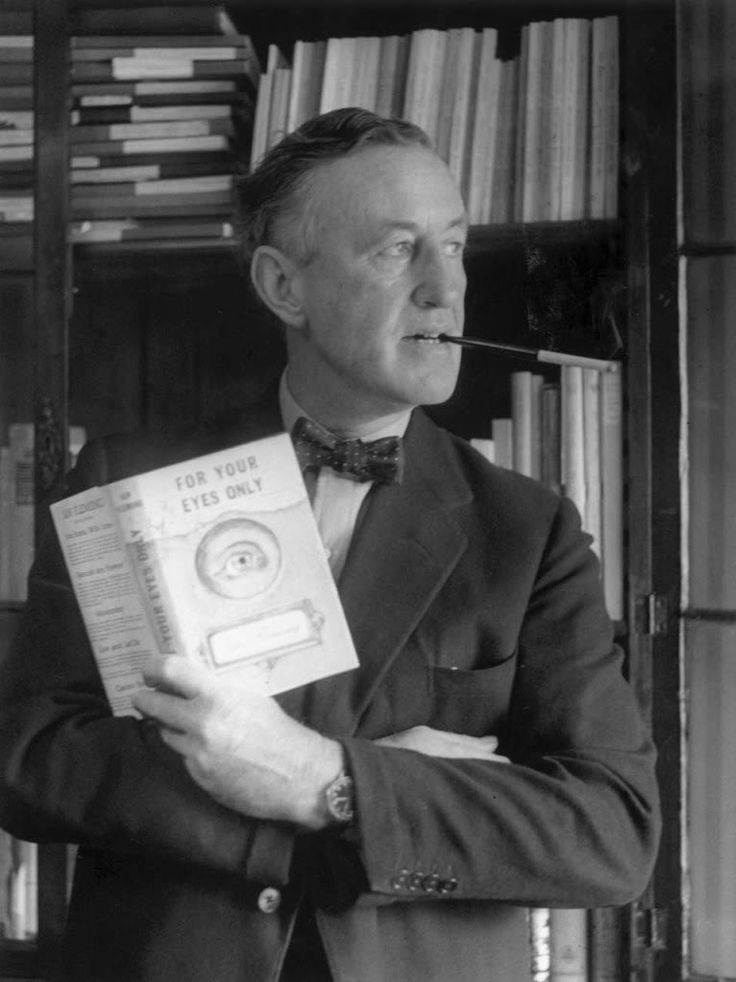Two short stories (1960s) by Ian Fleming Excerpts were published in the UK edition of John Pearson`s “The Life of Ian Fleming”.
Excerpt 1:
(Written shortly before he died, Fleming never got past the first page and a half. Fleming based the character Zographos on a real-life card dealer with the same name.) …”It was like this, Mr Bond.” Zographos had a precise way of speaking with the thin tips of his lips while his half-hard half-soft Greek eyes measured the reaction of his words on the listener… “The Russians are chess players. They are mathematicians. Cold machines. But they are also mad. The mad ones forsake the chess and the mathematics and become gamblers. Now, Mr Bond.” Zographos laid a hand on Bond`s sleeve and quickly withdrew it because he knew Englishmen, just as he knew the characteristics of every race, every race with money, in the world. “There are two gamblers… the man who lays the odds and the man who accepts them. The bookmaker and the punter. The casino and, if you like” – Mr Zographos`s smile was sly with the “shared secret” and proud with the right word – “The suckers.”
Excerpt 2:
In the early morning, at about 7.30, the stringy whimperings of the piped radio brought visions of a million homes waking up all over Britain… of him, or perhaps her, getting up to make the early morning tea, to put the dog out, to stoke the boiler. And then will this shirt do for another day? The socks, the paints? The Ever-ready, the Gillette shave, the Brylcreem on the hair, the bowler hat or the homburg, the umbrella and the briefcase or the sample case? Then “Dodo”, the family saloon out on the concrete arterial, probably with her driving. The red-brick station, the other husbands, the other wives, the clickety-click of the 8.15 round the curve by the gold course. Hullo Sidney! Hullo Arthur! After you Mr Shacker… and the drab life picking up speed and flicking on up the rails between the conifers and the damp evergreens. Bond switched on his electric blanket and waited for his hot water with a slice of lemon and contemplated the world with horror and disgust.
Book of Golden Words (1964)
Ian Fleming`s notebook of ideas. In February 1964, a Daily Express reporter copied several entries from it. Quoting from Henry Ziegler`s “The Spy Who Came In With The Gold”:
There was a notation of the name “Mr Szasz,” which Fleming thought would be ideal for a villain. He had somehow come across the Bulgar proverb “My Enemy`s Enemy (is my friend),” and if he had lived, it would probably have turned up on the lips of some inscrutable villain. Also in the book was the sentence, “You won`t have a lover if you don`t love,” which was pure Fleming and might have issued as wisdom from some future heroine.
(Note: Many of Fleming`s later titles feature pronouns, i.e. For *YOUR* Eyes Only, The Spy Who Loved *ME*, On *HER* Majesty`s Secret Service, *YOU* Only Live Twice, so it`s possible that “My Enemy`s Enemy was a prospective title.)
For a more detailed explanation, please read the article: My Enemy`s Enemy Is My Friend, by following the link below.
Purple Domesticity
by Ian Fleming (circa 1926) A writer asks a painter to illustrate his book about “style, just style”. The artist throws paint at the canvas from two yards away. Books and Bookies praise the author for “the depth of feeling in the script” and the painter for “the breadth of conception in the illustrations”. The critics go on to say: “Deep, deep, stuff. Broad, broad yet how high, how high.”
Death, On Two Occasions
by Ian Fleming (1927) The sadistic Graf Schlick lives in a big castle and preys on a young virgin. Little does he know that his latest victim has leprosy. The story ends with Schlik in the last stages of the painful disease.
A Poor Man Escapes
by Ian Fleming (1927) A man pawns his belongings after his wife dies. He treats himself to a meal and falls asleep inside the restaurant. A waiter calls the police to have the man removed. When the police arrive, the man drinks poison; the waiter wrongly assumes that the man is once again asleep.
“But Henrik had paid and was rich for the first time in his life.”
Untitled
by Ian Fleming (1928) “Venice station was at its hottest, dustiest, dirtiest. Tony stepped out of the frying pan of his train into its fire. His collar freed itself from his neck in a stream of perspiration.”

